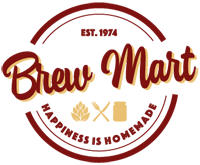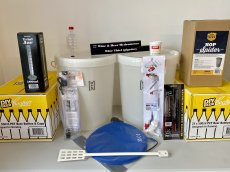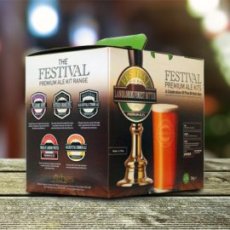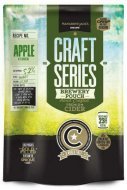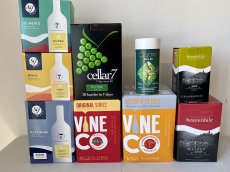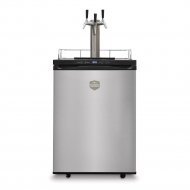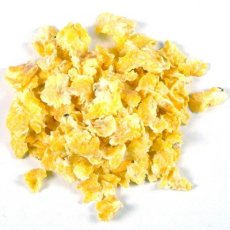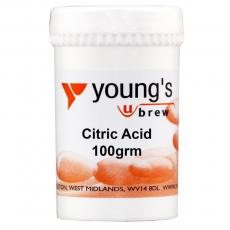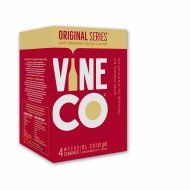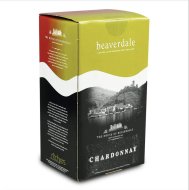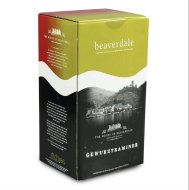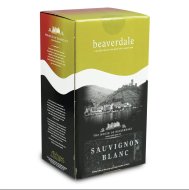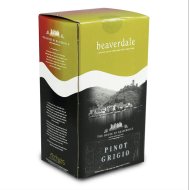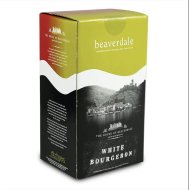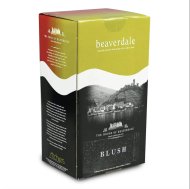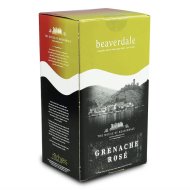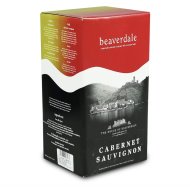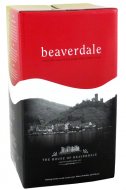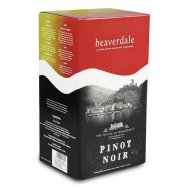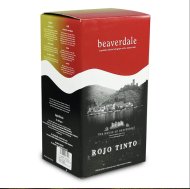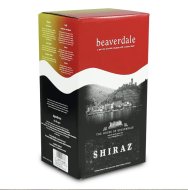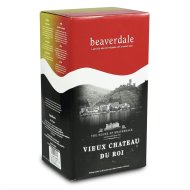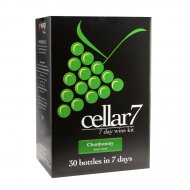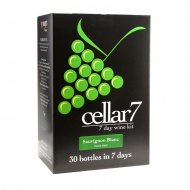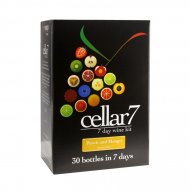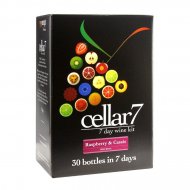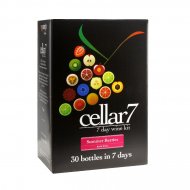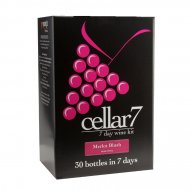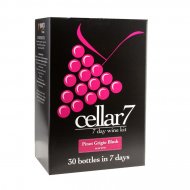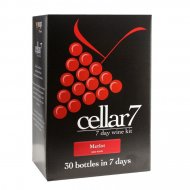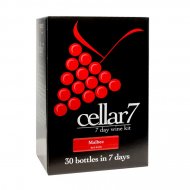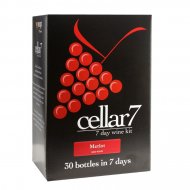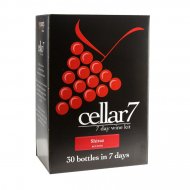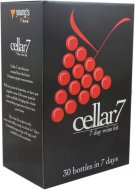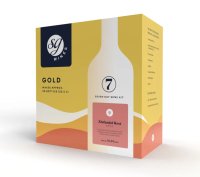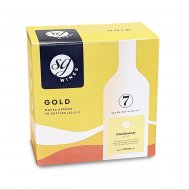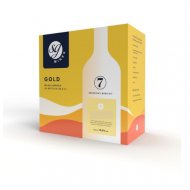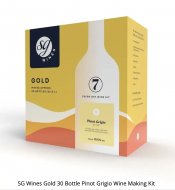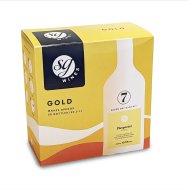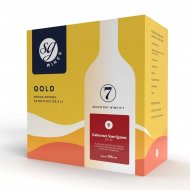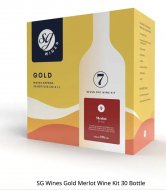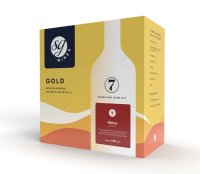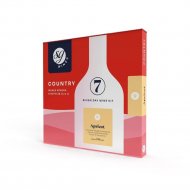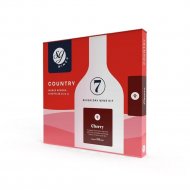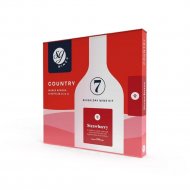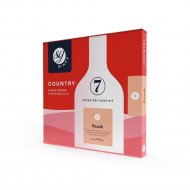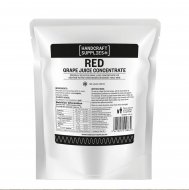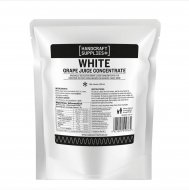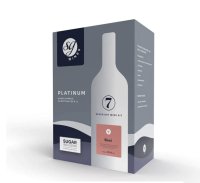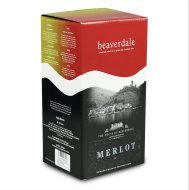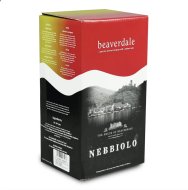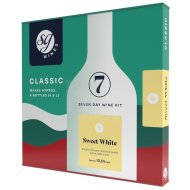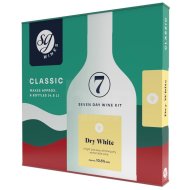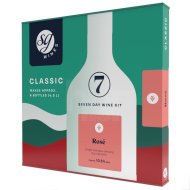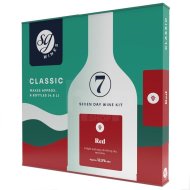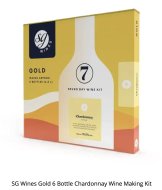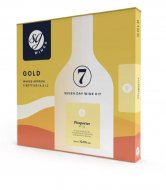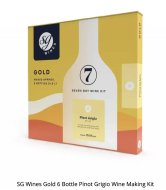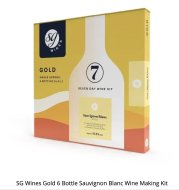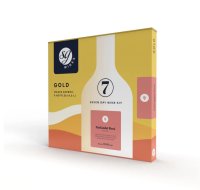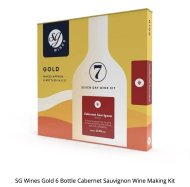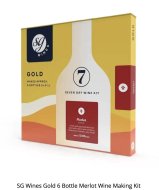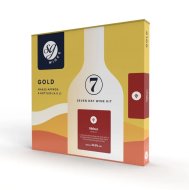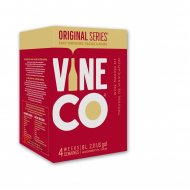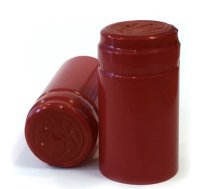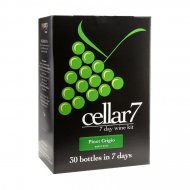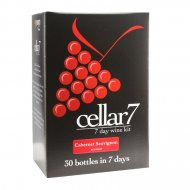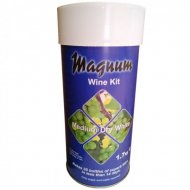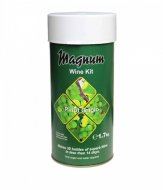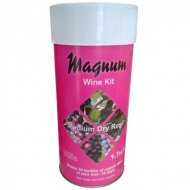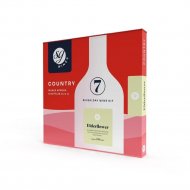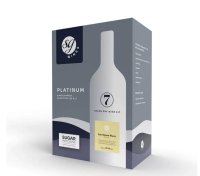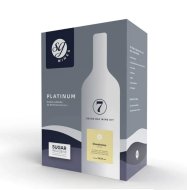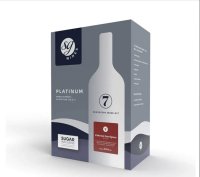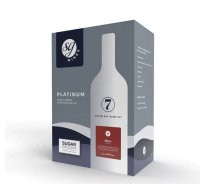Sign up to the Brew Mart newsletter for the latest news, offers & more
Happy Easter from Brew Mart!
Brew Mart will be closed on Good Friday & Easter Monday. Open Saturday 19th as usual.
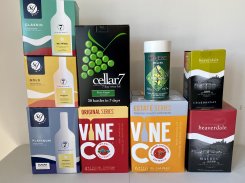
Wine Making Kits
With our vast range of home brew wine making kits, virtually any commercial style of wine can be produced, at home, with the minimum of effort.
Using the equipment in Brew Mart's wine starter pack and a wine making kit a wine can be ready in as little time as a week.
Here is a guide to wine making
VineCo Estate Series Riesling California Wine Making Kit - 30 Bottles
VineCo Estate Series Sauvignon Blanc, California Wine Making Kit - 30 Bottles
VineCo Estate Series Pinot Grigio Italy Wine Brewing Kit - 30 Bottles
Vineco Estate Series Chardonnay Australia Wine Making Kit - 30 Bottles
VineCo Estate Series Cabernet Sauvignon, Australia Wine Making Kit - 30 Bottles
VineCo Estate Series - Amarone Italy Wine Making Kit - 30 Bottles
VineCo Original Series Cabernet Sauvignon Chile Wine Brewing Kit - 30 Btl
VineCo Original Series Shiraz, California Wine Brewing Kit - 30 Btl
VineCo Original Series Trilogy California Wine Brewing Kit - 30 Btl
VineCo Original Series Chardonnay California Homebrew Wine Kit - 30 Btl
VineCo Original Series Malbec Chile Wine Brewing Kit - 30 Btl
All wine making kits have their own easy to follow instructions.
Some homebrew making wine kits are available in both 1 gallon (6 bottles) and 5 gallons (30 bottles) sizes.
All wine's favourite types are available, and Solomon Grundy and Cellar 7 has a popular range of different fruit wines.
Brewmart stock homebrew wine from all the major homebrew manufacturers such as
- Beaverdale, Available in both a six-bottle and thirty bottle making wine kits.
- Cellar 7, Homebrew wine kit requires no sugar as the taste comes directly from the juice.
- Magnum, A trendy entry-level homebrew wine kit.
- Solomon Grundy. A one-gallon and five-gallon wine kit plus fruit wine
- VineCo Estate Series Experience making wine with the rewarding satisfaction of crafting one of the most outstanding premium wines
- VineCo Original Series The very best ingredients, yours for making wine and enjoying to the full.
- Each home brew wine kit will have its own instructions on how to make wine.
- Click here to see How to make wine at home
What is in a kit?
Buying The Kit
Everyone knows that good grape make world-class wine. However, in recent years, the quality of kit wines has improved enough to impress even the most dedicated fresh-fruit purist.
Besides offering first-time winemakers an accessible introduction to the hobby, wine kits offer experts a chance to produce wines from grape-growing regions worldwide. Some varietals are only grown in some areas of the world or grow in amounts too small to allow for use in the home winemaking market.
Vineyards such Nebbiolo or Viognier are very specialists, and it isn't very likely that they would supply the home wine kit market.
However, high-quality varietal wine kits are available at any time of the year. They are sourced from vineyards in California, Australia, France, Italy, Portugal, Spain and other classic wine areas.
You can also find wine kits for exciting styles, like late-harvest wines, noble-rot wines, ice wines, sparkling wines, sherries and ports.
The wine-kit enthusiasm began in the 1970s when high-quality kits first emerged from California.
Although some laws called for a minimum of 51 per cent content for a wine kit of any stated variety, many manufacturers provided 70 per cent. This higher percentage means that 70 per cent of the juice or concentrate is made from pure Chardonnay grapes in a Chardonnay kit.
The greater the Chardonnay content in the wine kit, the more varietal character in the finished wine.
The Californian wine kits being considered better than their European counterparts forced a wholesale effort to increase quality worldwide. The boom in aseptic packaging, fueled by cutting-edge Canadian companies, also fueled the drive for quality and freshness. For example, in the 1970s in Canada, less than one per cent of all wine consumed came from home winemakers.
As of today, the figure is closer to 10 or 12 per cent. This increase is attributable to popular homebrew shops and the widespread availability of suitable kits.
Making a kit of wine is less labour-intensive than producing wine from fresh grapes, making it much cheaper. You will gain savings in time and money because you won't need to buy the equipment such as crushes or presses required when using fresh grapes.
To produce five-gallon of wine, you need approximately ninety pounds of grapes. Ninety pounds of grapes could cost as little as £100 or as much as £400. Wine kits that yield the same volume cost anywhere from £40 to £100.
Another bonus: Many wine kits are all-inclusive. They will contain all the additives you will need, and they will be pre-measured. The instructions are easy to follow, and the results are relatively predictable. Some recipe options allow you to add more concentrate for a more extensive, grander wine. You may also choose to add less water than a concentrate recipe suggests. These two options would be akin to "letting the vats bleed" at a commercial winery.
If you're a novice winemaker, a wine kit is a very suitable way to begin learning the art. If you're an expert fresh-grape winemaker, it is a good idea to supplement your portfolio with a wine kit. It will deepen your knowledge and broaden your skills.
Buying The Kit
There are four distinct types of wine kits:
- Pure juice.
- Fully concentrated grape juice.
- Partially concentrated grape juice.
- Wine Kits that contain both juice plus concentrate.
The approach to making wine from these wine kits is similar. The only difference is that the pure juice wine kit requires no additional water. These wine kits are the most expensive.
- Because of the juice's purity and costly transport. (The wine kit weighs more than a concentrate wine kit) and storage requirements add to the cost they should be refrigerated.
- Grape concentrates are grape juices that have had the water removed by using a high-tech vacuum process. Some wine kits are entirely concentrated, which means you have to add water and sometimes additional sugar before making the wine.
- Partially concentrated wine kits require less water to be added back. Due to this, they produce a wine that's truer to character.
Wine Kit prices should directly correlate to the purity of the product. Pure juice wine kits will be more expensive than concentrate or mixed wine kits.
Before you leave the homebrew shop, check the wine kit instructions. You may need to purchase additional ingredients such as grape tannin, wine acids, nutrients and yeast. Some concentrate wine kits also require extra brewing sugar.
Juice versus Concentrate
Here is a comparison of juice and concentrate. Some wine kits contain one, some the other and some both. Pure juice wine kits are made from freshly crushed grapes; the juice (and possibly some grape pulp) is vacuum-sealed in food-grade pouches. The concentrate is pure grape juice with 30 to 70 per cent of its water vacuumed out; it is then sealed in cans or bladder packs to keep the freshness.
Juice- Pure grape juice (no added water required)
- Some pure juices require refrigeration.
- Colour indicates quality: Whites should be very pale gold; reds should be blue-red, not brown.
- Reds usually have some grape pulp and stem added. Adding this allows some control over maceration, which is when the grape must of red wines are kept in contact with the pulp to extract maximum flavour and colour.
- Bladder-pack juices last approximately three years. But fresher is always better.
- Wines have a longer but later drinking window.
- Aseptic packaging. The juice is zapped at high temperatures, then sealed in a pail or bladder pack. The air is vacuumed out.
- Pure fruit juice wines usually provide the best typicity (the sensory and tactile elements that say "this is Riesling!" or "this is a Chardonnay!")
- Can use juice in tandem with concentrates
- Pure juice wine kits are more expensive than concentrates.
- Pure grape juice with the water removed (although earlier versions also contained other concentrates, such as pear).
- Added water needed (quantity needed depends on the degree of concentration of the wine kit).
- Wine kits are packaged in cans and bladder packs.
- Canned products remain good for up to one year; however, the fresher, the better.
- Tailored yeasts recommended.
- Colour indicates quality: White concentrate should be very pale gold; red concentrate should be blue-red, not brown.
- The international standard for grape concentrate is 68° to 70° Brix, or 68 to 70 per cent solids (mainly, grape sugar).
- The degree of concentration ranges from 30% to 77%. Above 70%, flavours are damaged.
- Wines have a shorter and somewhat earlier drinking window.
- The concentrate can generate some very correct and characterful wines.
- The concentrate can be used in tandem with grape juice.
Enjoy your wine!
Enjoying it isn't a suggestion. It is more a prediction. Look after your wines well, and they will delight you. Ask questions to broaden your knowledge and gain exposure to other people's wines and winemaking methods.
It is a good idea to get into the habit of taking a few notes when you are drinking and enjoying your bottles.. Taking notes will give you a feel for the personality and promise of the wines you've chosen. A few years from now, you will open a bottle that tastes as terrific. And it will have come from a wine kit!
Check here how to deal with any problems with wine making
You may also like
